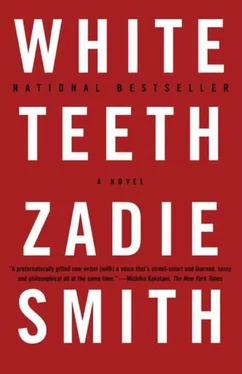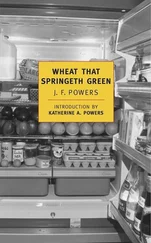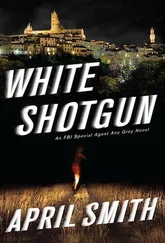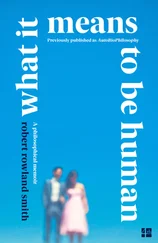‘Irie, look at you! Pickney nah even got a gansey on – child must be freezin’! Shiverin’ like a Mexico bean. Let me feel you. Fever! You bringin’ fever into my house?’
It was important, in Hortense’s presence, never to admit to illness. The cure, as in most Jamaican households, was always more painful than the symptoms.
‘I’m fine. There’s nothing wrong with-’
‘Oh, really?’ Hortense put Irie’s hand on her own forehead. ‘That’s fever as sure as fever is fever. Feel it?’
Irie felt it. She was hot as hell.
‘Come ’ere.’ Hortense grabbed a rug from Darcus’s chair and wrapped it around Irie’s shoulders, ‘Now come into the kitchen an’ cease an’ sekkle. Runnin’ roun’ on a night like dis, wearin’ flimsy nonsense! You’re having a hot drink of cerace and den gone a bed quicker den you ever did in your life.’
Irie accepted the smelly wrap and followed Hortense into the tiny kitchen, where they both sat down.
‘Let me look at you.’
Hortense leant against the oven with hands on hips. ‘You look like Mr Death, your new lover. How you get here?’
Once again, one had to be careful in answering. Hortense’s contempt for London Transport was a great comfort to her in her old age. She could take one word like train and draw a melody out of it ( Northern Line ), which expanded into an aria ( The Underground ) and blossomed into a theme ( The Overground ) and then grew exponentially into an operetta ( The Evils and Inequities of British Rail ).
‘Er… Bus. N17. It was cold on the top deck. Maybe I caught a chill.’
‘I don’ tink dere’s any maybes about it, young lady. An’ I’m sure I don’ know why you come ’pon de bus, when it take tree hours to arrive an’ leave you waitin’ in de col’ an’ den’ when you get pon it de windows are open anyway an’ you freeze half to death.’
Hortense poured a colourless liquid from a small plastic container into her hand. ‘Come ’ere.’
‘Why?’ demanded Irie, immediately suspicious. ‘What’s that?’
‘Nuttin’, come ’ere. Take off your spectacles.’
Hortense approached with a cupped hand.
‘Not in my eye! There’s nothing wrong with my eye!’
‘Stop fussin’. I’m not puttin’ nuttin’ in your eye.’
‘Just tell me what it is,’ pleaded Irie, trying to work out for which orifice it was intended and screaming as the cupped hand reached her face, spreading the liquid from forehead to chin.
‘Aaagh! It burns!’
‘Bay rum,’ said Hortense matter-of-factly. ‘Burns de fever away. No, don’ wash it off. Jus’ leave it to do its biznezz.’
Irie gritted her teeth as the torture of a thousand pin-pricks faded to five hundred, then twenty-five, until finally it was just a warm flush of the kind delivered by a slap.
‘So!’ said Hortense, entirely awake now and somewhat triumphant. ‘You finally dash from that godless woman, I see. An’ caught a flu while you doin’ it! Well… there are those who wouldn’t blame you, no, not at all… No one knows better dan me what dat woman be like. Never at home, learnin’ all her isms and skisms in the university, leavin’ husband and pickney at home, hungry and maga. Lord, naturally you flee! Well…’ She sighed and put a copper kettle on the stove. ‘It is written. You will flee by my mountain valley, for it will extend to Azel. You will flee as you fled from the earthquake in the days of Uzziah king of Judah. Then the LORD my God will come, and all the holy ones with him . Zechariah 14:5. In the end the good ones will flee from the evil. Oh, Irie Ambrosia… I knew you come in de end. All God’s children return in de end.’
‘Gran, I haven’t come to find God. I just want to do some quiet study here and get my head together. I need to stay a few months – at least till the New Year. Oh… ugh… I feel a bit woozy. Can I have an orange?’
‘Yes, dey all return to de Lord Jesus in de end,’ continued Hortense to herself, placing the bitter root of cerace into a kettle. ‘Dat’s not a real orange, dear. All de fruit is plasticated. De flowers are plasticated also. I don’t believe de Lord meant me to spend de little housekeeping money I possess on perishable goods. Have some dates.’
Irie grimaced at the shrivelled fruit plonked in front of her.
‘So you lef Archibald wid dat woman… poor ting. Me always like Archibald,’ said Hortense sadly, scrubbing the brown scum from a teacup with two soapy fingers. ‘Him was never my objection as such . He always been a level-headed sort a fellow. Blessed are de peacekeepers. He always strike me as a peacekeeper. But it more de principle of de ting, you know? Black and white never come to no good. De Lord Jesus never meant us to mix it up. Dat’s why he made a hol’ heap a fuss about de children of men building de tower of Babel. ’Im want everybody to keep tings separate. And the Lord did confound the language of all the earth and from thence did the Lord scatter them abroad upon the face of all the earth . Genesis 11:9. When you mix it up, nuttin’ good can come. It wasn’t intended . Except you,’ she added as an afterthought. ‘You’re about de only good ting to come out of dat… Bwoy, sometime it like lookin’ in a mirror-glass,’ she said, lifting Irie’s chin with her wrinkled digits. ‘You built like me, big, you know! Hip and tie and rhas, and titties. My mudder was de same way. You even named after my mudder.’
‘Irie?’ asked Irie, trying hard to listen, but feeling the damp smog of her fever pulling her under.
‘No, dear, Ambrosia . De stuff dat make you live for ever. Now,’ she said, clapping her hands together, catching Irie’s next question between them, ‘you sleepin’ in de living room. I’ll get a blanket and pillows and den we talk in de marnin’. I’m up at six, ’cos I got Witness biznezz, so don’ tink you sleeping none after eight. Pickney, you hear me?’
‘Mmm. But what about Mum’s old room? Can’t I just sleep in there?’
Hortense took Irie’s weight half on her shoulder and led her into the living room. ‘No, dat’s not possible. Dere is a certain situation,’ said Hortense mysteriously. ‘Dat can wait till de sun is up to be hexplained. Fear them not therefore: for there is nothing covered that shall not be revealed ,’ she intoned quietly, turning to go. ‘ And nothing hid, that shall not be known . Dat is Mat-chew, 10:26.’
An autumn morning was the only time worth spending in that basement flat. Between 6 and 7 a.m. when the sun was still low, light shot through the front window, bathed the lounge in yellow, dappled the long thin allotment (7 ft × 30 ft) and gave a healthy veneer to the tomatoes. You could almost convince yourself, at 6 a.m., that you were downstairs in some Continental cabana, or at least street level in Torquay, rather than below ground in Lambeth. The glare was such that you couldn’t make out the railway sidings where the strip of green ended, or the busy everyday feet that passed by the lounge window, kicking dust through the grating at the glass. It was all white light and clever shade at six in the morning. Hugging a cup of tea at the kitchen table, squinting at the grass, Irie saw vineyards out there; she saw Florentine scenes instead of the uneven higgledy-piggledy of Lambeth rooftops; she saw a muscular shadowy Italian plucking full berries and crushing them underfoot. Then the mirage, sun reliant as it was, disappeared, the whole scene swallowed by a devouring cloud. Leaving only some crumbling Edwardian housing. Railway sidings named after a careless child. A long, narrow strip of allotment where next to nothing would grow. And a bleached-out bandy-legged red-headed man with terrible posture and wellington boots, stamping away in the mulch, trying to shake the remnants of a squashed tomato from his heel.
Читать дальше












